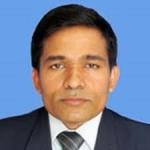
The UNESCO-UNEVOC International Centre: Who We Are | What We Do | Working With Us | Get in Touch
The UNEVOC Network: Learn About the Network | UNEVOC Network Directory
For Members: UNEVOC Centre Dashboard
Thematic Areas: Inclusion and Youth | Digital Transformation | Private Sector Engagement | SDGs and Greening TVET
Our Key Programmes & Projects: BILT: Bridging Innovation and Learning in TVET | Building TVET resilience | TVET Leadership Programme | WYSD: World Youth Skills Day
Past Activities: COVID-19 response | i-hubs project | TVET Global Forums | Virtual Conferences | YEM Knowledge Portal
Our Services & Resources: Publications | TVET Forum | TVET Country Profiles | TVETipedia Glossary | Innovative and Promising Practices | Toolkits for TVET Providers | Entrepreneurial Learning Guide
Events: Major TVET Events | UNEVOC Network News
The Tertiary and Vocational Education Commission (TVEC) was established in 1991 as the apex body in the technical and vocational education and training sector under the provisions of the Tertiary and Vocational Education Act No 20 of 1990 of Sri Lanka. Its primary responsibilities are policy advocasy, planning, quality assurance, authorize qualifications, coordination and development of tertiary and vocational education in the country.
The amendments introduced in December 1999 to the Tertiary and Vocational Education Act No. 20 of 1990, ensures that 10 out of 17 members of the TVEC including its Chairman, represent the Employer Associations and Private Sector entrepreneurs. This provides a forum at the highest level for the private sector to contribute towards developing policies and programmes that would help achieve the vision of the Government of maintaining a demand-driven training system.
The Chairman,Director General and Deputy Director General of the Commission are assisted by a team of Directors, in charge of development functions and a administrtion division which oversees the personnel, financial and administration functions.
TVEC roles are:
1.Providing leadership and support in developing and improving TVET nationally
2.Obtaining and securing resources
3.Receiving UNEVOC publication for dissemination and distribution
4.Channeling issues, new and interesting ideas, experiences and practices to UNEVOC and UNEVOC network
5.Undertaking activities such as meetings, seminars, workshops, conferences, research, studies, etc.,
6.Mobilizing TVET experts for participation in UNEVOC events,
7.Providing advice to National Commissions for UNESCO
8.Communicating with other Centers
9.Sharing TVET good practices and experiences within the region and globally.
TVEC envisions for a Sri Lanka where all citizens have access to the highest possible standards of tertiary and vocational education and training which meet the human resource development needs of the country. As the apex body in the TVET sector, it is committed to establish and maintain an efficient and effective technical education and vocational training system which is relevant to socio- economic goals and changing market needs.

